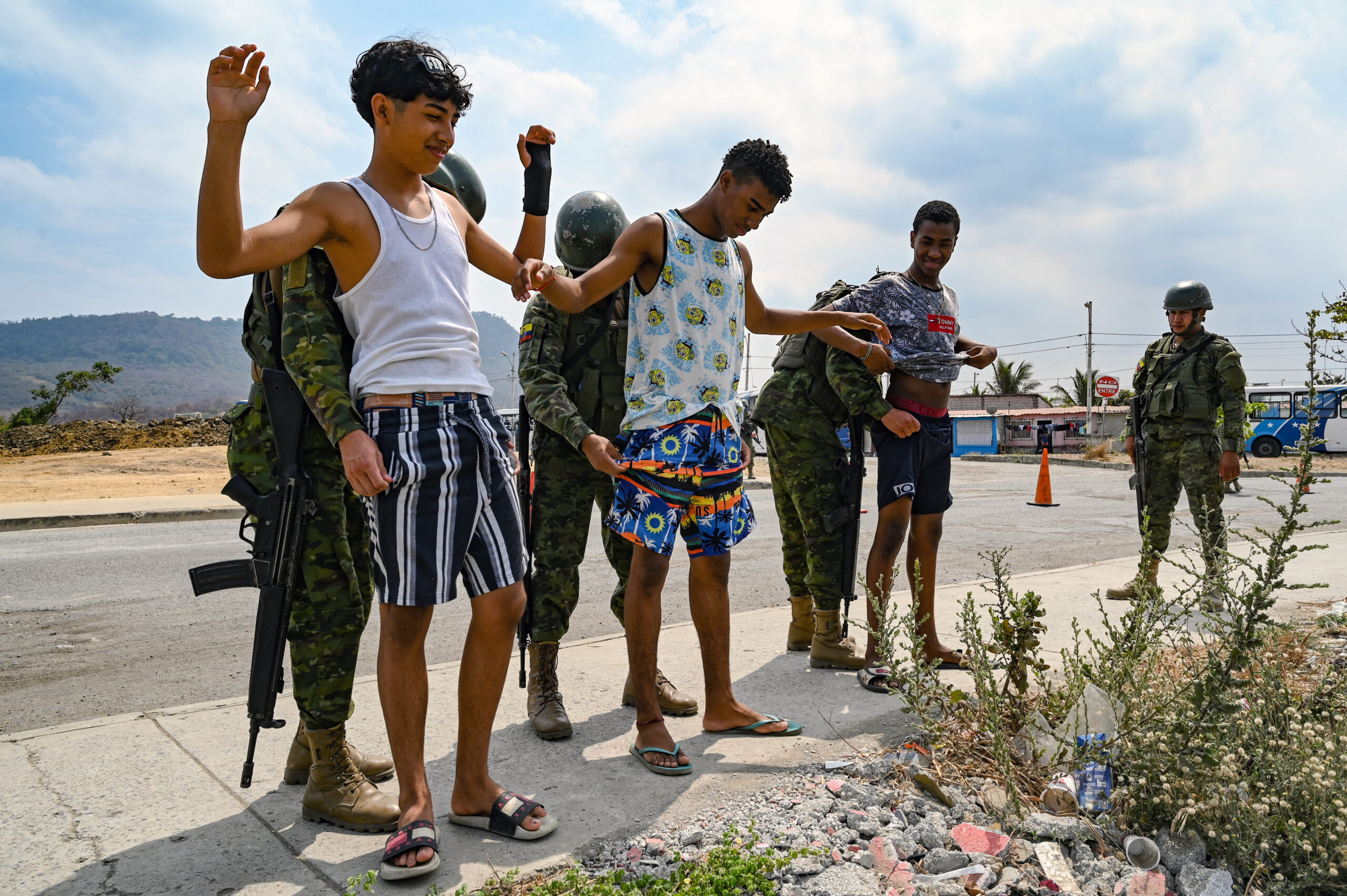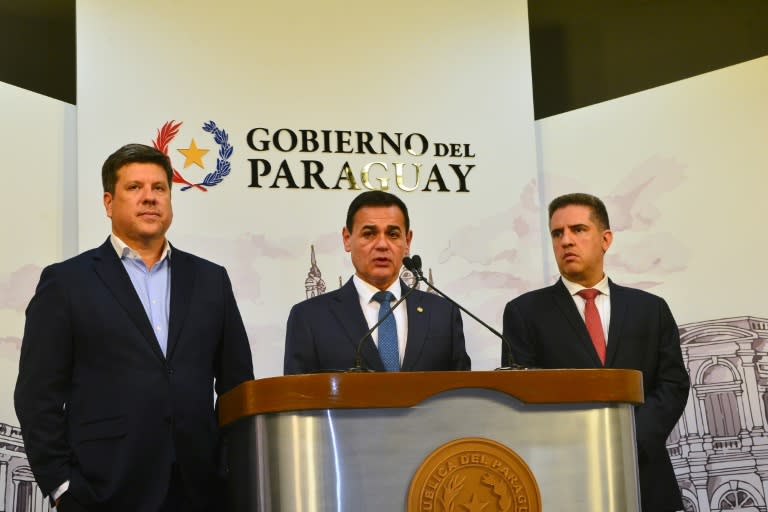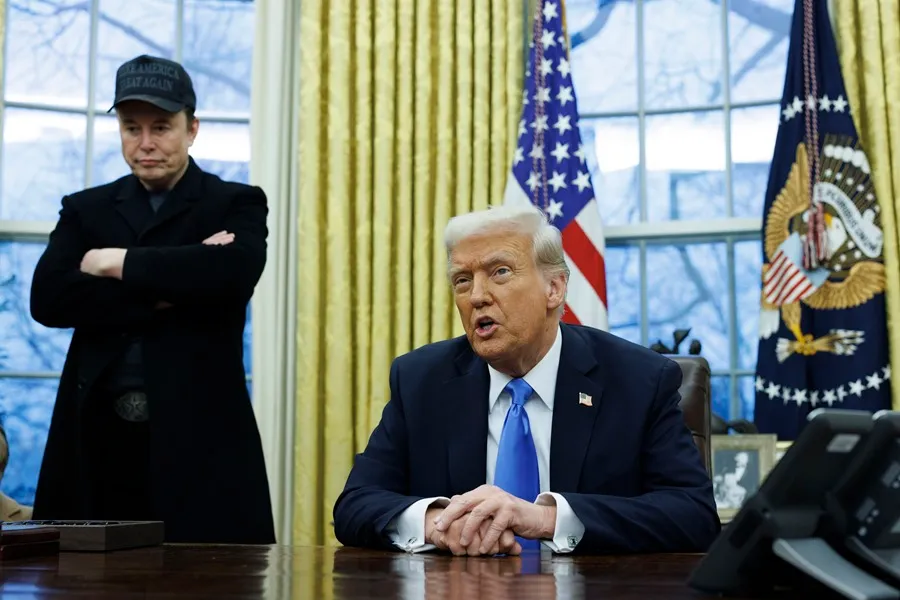International
Guayakill: Ecuadoran port city torn apart by gangs

| By AFP | Héctor Velasco and Karla Pesantes |
Entire neighborhoods run by gangs, prison bloodbaths and police overwhelmed by criminal firepower: Drug trafficking has transformed the Ecuadoran city of Guayaquil into a den of violence.
The port city of 2.8 million people, which on Saturday hosts the final of the Copa Libertadores competition, has witnessed scenes of incredible barbarity in recent years.
Hundreds of inmates have been killed — many beheaded or incinerated — in numerous prison battles, and civilians have increasingly gotten caught up in the gang war rocking the city rebaptized “Guayakill” by inhabitants.
So far this year, the commercial heart of Ecuador has seen 1 200 murders — 60 percent more than in 2021 according to official data.
Since last year, almost 400 inmates have died in several cities, most of them in Guayaquil, which has also been hit by a spate of car bombs and shocking scenes of bodies dangling from bridges.
And despite the government declaring states of emergency to allow for troop deployment and boosting police numbers in Guayaquil by over 1 000 to nearly 10 000, some fear it is a losing battle.
“We used to confront small arms… revolvers. But now on the streets we face American (automatic) rifles, grenades, explosive devices,” police forensics official Luis Alfonso Merino told AFP.
“The violence has grown enormously.”
Rifles, grenades
Once a relatively peaceful neighbor of major cocaine producers Colombia and Peru, Ecuador was long merely part of the drug transit route.
But recently, traffickers with suspected links to Mexican cartels such as Sinaloa, the Gulf Clan and Los Zetas have been expanding their domestic presence — fighting over the fast-growing local market and access to the port of Guayaquil for exports to Europe and the United States.
The city’s prisons, where gangs also battle it out for supremacy, are emblematic of the fast-declining security situation.
In one of the deadliest riots in Latin American history, 122 people were slaughtered at the infamous Guayas 1 penitentiary in September last year in an hours-long rampage by inmates wielding guns, machetes and explosives.
“The State does not govern the prisons,” Billy Navarrete of the CDH human rights NGO told AFP.
Instead, they are under the control of “criminal organizations with the complicity of law enforcement agents who allow, tolerate and enrich themselves with arms trafficking,” he said.
The government has announced it was stepping up enforcement. In 2021, it reported a record haul of 210 tons of drugs.
So far this year, the figure stands at 160 tons.
In a 2019 report, Ecuadoran intelligence said there were at least 26 criminal gangs fighting for control of the lucrative drug market, but officials have since said the number is likely higher.
And according to operations chief Major Robinson Sanchez in Guayaquil, the gangs are “better armed than the police.”
Wolves vs Eagles
At the entrance to Socio Vivienda II, an impoverished housing development and one of the most dangerous places in Guayaquil, police and soldiers stand guard.
Two dozen others in black uniforms, bulletproof vests and balaclavas patrol the narrow streets on motorcycles.
Some 24 000 people live in Socio Vivienda’s three sectors in the crossfire of the gang war that has resulted in several public shootouts since 2019 and forced school closures in recent weeks.
The gangs go by names such as Lobos (Wolves) and Tiguerones. The Aguilas (Eagles) are based higher up on the hill.
When the groups first started going head to head, the community itself erected metal gates at the ends of streets to prevent gang members from moving freely about.
But police removed these for ease of access, and now “the bullets zoom from one end to the other,” said a community leader, 45, who spoke on condition of anonymity in an atmosphere of fear.
‘Zombies’ and sentinels
Patrolling officers stop at a house in Socio Vivienda and enter by force.
They find no drugs, only three youngsters with “Tigueron” tattooed onto their arms. It is not enough to detain them.
The gangs use children as young as 10 as sentinels or informants, residents and police say.
As they “rise” in the organization, they earn the right to get tattooed — but not without having committed a crime.
On the streets, it is common to see doped-up consumers of “H” — a heroin residue sold for 25 cents per gram. They are known locally as “zombies.”
The community leader told AFP that luxury vehicles moved in and out freely, transporting drugs right under the noses of police.
And as fearful families leave the neighborhood, gang members immediately “move in” to their homes, he added.
So far this year in Socio Vivienda II alone, records show 252 killings, up from 66 in 2021.
On the weekend preceding Saturday’s Libertadores clash between Brazilian teams Flamengo and Athletico Paranaense, 21 murders were reported in Guayaquil.
Some 50 000 foreign fans are expected to turn out for Saturday’s final.
International
Paraguay summons Brazilian ambassador over Itaipú espionage scandal

Paraguay summoned the Brazilian ambassador in Asunción on Tuesday to demand “explanations” and called its own representative in Brasília for consultations following Brazil’s acknowledgment of an espionage operation. The Brazilian government, led by President Luiz Inácio Lula da Silva, attributed the operation to the previous administration.
The surveillance effort aimed to uncover Paraguay’s position in now-suspended negotiations with Brazil regarding the pricing of electricity from the binational Itaipú hydroelectric plant, according to reports in the Brazilian press.
The Brazilian government “categorically denied any involvement in the intelligence operation,” stating in a Foreign Ministry communiqué on Monday that the espionage was carried out under former President Jair Bolsonaro’s administration (2019-2023).
“The operation was authorized by the previous government in June 2022 and was annulled by the interim director of the (state intelligence agency) ABIN on March 27, 2023, as soon as the current administration became aware of it,” Brazil’s government asserted.
Paraguay’s Foreign Minister Rubén Ramírez announced that Brazilian Ambassador José Antonio Marcondes de Carvalho was summoned “to provide detailed explanations” regarding the operation. Additionally, Paraguay recalled its diplomatic representative in Brasília “to report on aspects related to the intelligence activity conducted by Brazil regarding Paraguay’s government affairs.”
International
Elon Musk to step down as government advisor, per Trump insiders

President Donald Trump has informed his inner circle that Elon Musk will be stepping down from his role as a government advisor, according to a report by Politico today.
Citing three individuals close to Trump, Politico states that the president is pleased with Musk’s leadership at the Department of Government Efficiency (DOGE), where he has implemented significant budget cuts. However, both have agreed that it is time for Musk to return to his businesses and support Trump from a different position outside the government.
A senior administration official told Politico that Musk will likely maintain an informal advisory role and continue to be an occasional visitor to the White House. Another source warned that anyone thinking Musk will completely disappear from Trump’s circle is “deluding themselves.”
According to the sources, this transition is expected to coincide with the end of Musk’s tenure as a “special government employee,” a temporary status that exempts him from certain ethics and conflict-of-interest regulations. This 130-day period is set to expire in late May or early June.
International
Milei vows to make Argentina so strong that Falkland Islanders “choose” to join

Argentine President Javier Milei reaffirmed his country’s claim over the Falkland Islands (known as the Islas Malvinas in Argentina) and praised the role of the nation’s armed forces during a ceremony marking the “Veterans and Fallen Soldiers of the Malvinas War Day,” commemorating 43 years since the 1982 conflict with the United Kingdom.
Argentina continues to assert sovereignty over the islands, arguing that Britain unlawfully seized them in 1833.
“If sovereignty over the Malvinas is the issue, we have always made it clear that the most important vote is the one cast with one’s feet. We hope that one day, the Malvinas residents will choose to vote with their feet and join us,” Milei stated.
“That is why we aim to become a global power—so much so that they would prefer to be Argentine, making deterrence or persuasion unnecessary. This is why we have embarked on a path of liberation, working to make Argentina the freest country in the world and once again the nation with the highest GDP per capita on the planet,” he added.
-

 International4 days ago
International4 days agoSon of journalist José Rubén Zamora condemns father’s return to prison as “illegal”
-

 International4 days ago
International4 days agoMiyazaki’s style goes viral with AI but at what cost?
-

 Central America3 days ago
Central America3 days agoPanama police clarifies that Interpol alert for Martinelli is still pending
-

 Central America2 days ago
Central America2 days agoU.S. Homeland Security Secretary urges Mexico to strengthen Guatemala border
-

 International2 days ago
International2 days agoTrump urges Putin to reach peace deal
-

 Central America2 days ago
Central America2 days agoPanama grants Martinelli 72-hour extension to travel to Nicaragua
-

 International3 days ago
International3 days agoDeportation flight lands in Venezuela; government denies criminal gang links
-

 International14 hours ago
International14 hours agoParaguay summons Brazilian ambassador over Itaipú espionage scandal
-

 Sports14 hours ago
Sports14 hours agoFilipe Luis debuts as coach in Copa Libertadores with Flamengo
-

 Central America12 hours ago
Central America12 hours agoGuatemalan police officer killed in mob riots over baby kidnapping
-

 International14 hours ago
International14 hours agoMilei vows to make Argentina so strong that Falkland Islanders “choose” to join
-

 International14 hours ago
International14 hours agoICE agent’s arrest of suspect sparks controversy in Boston
-

 International14 hours ago
International14 hours agoElon Musk to step down as government advisor, per Trump insiders
-

 Sports14 hours ago
Sports14 hours agoVenezuela investigates 18 baseball players seeking asylum in Spain
-

 International14 hours ago
International14 hours agoÓscar Arias: Trump’s trade policies are a step backward















